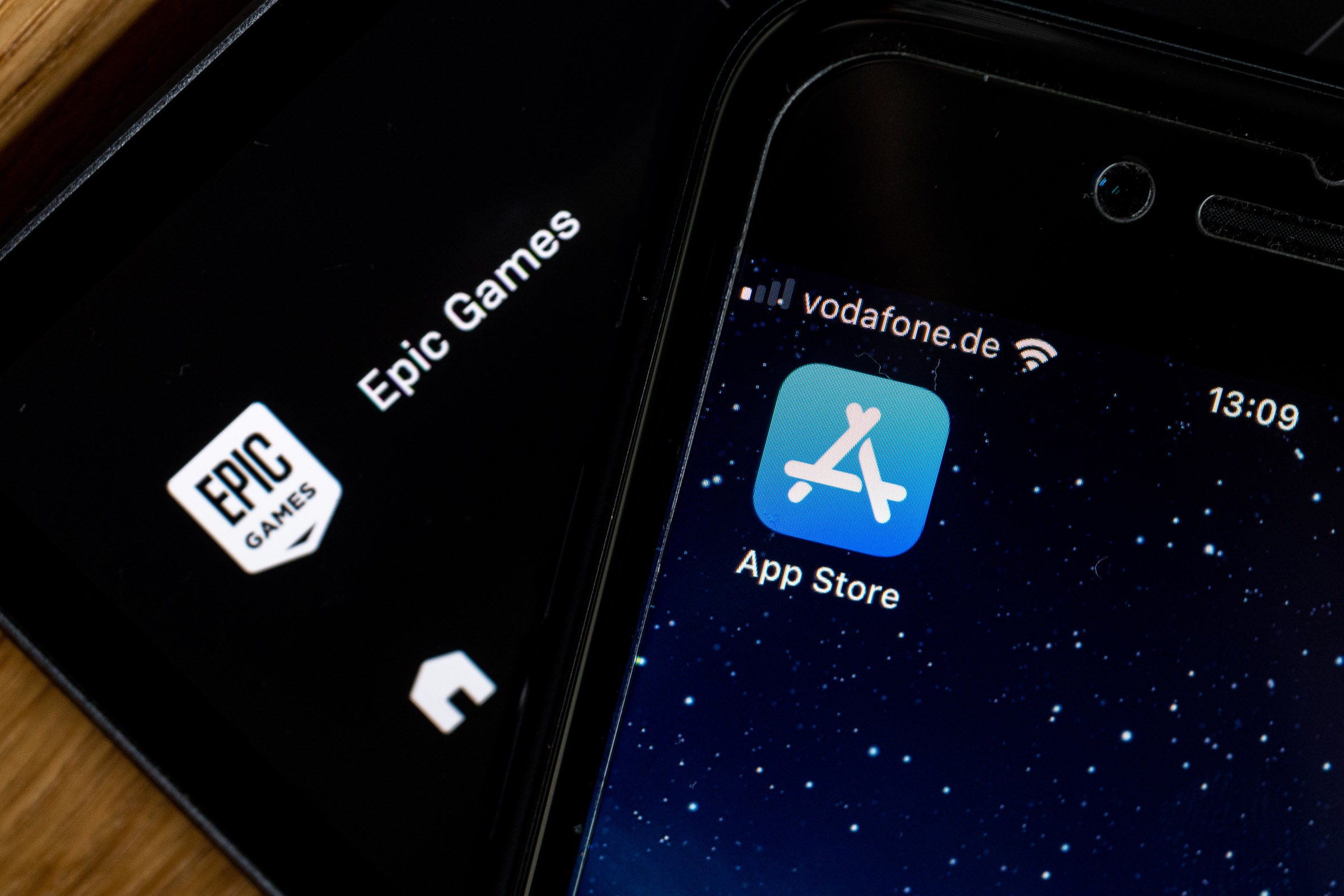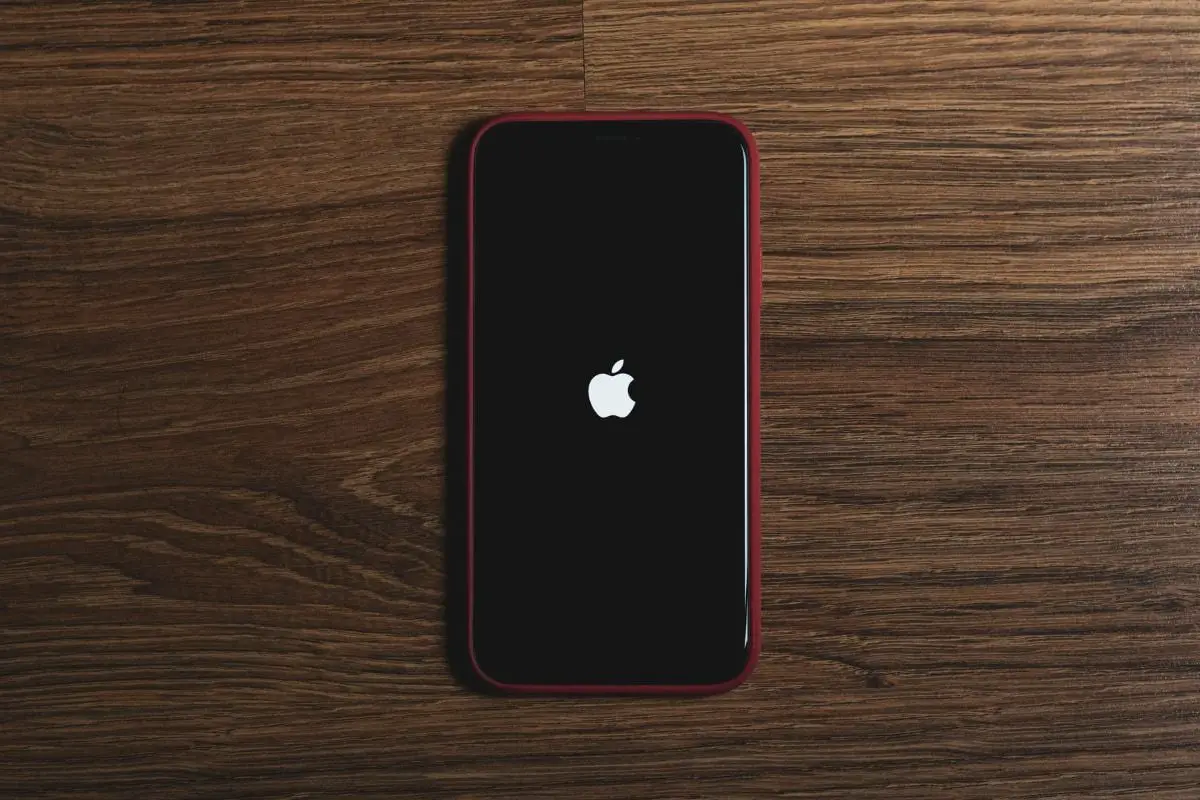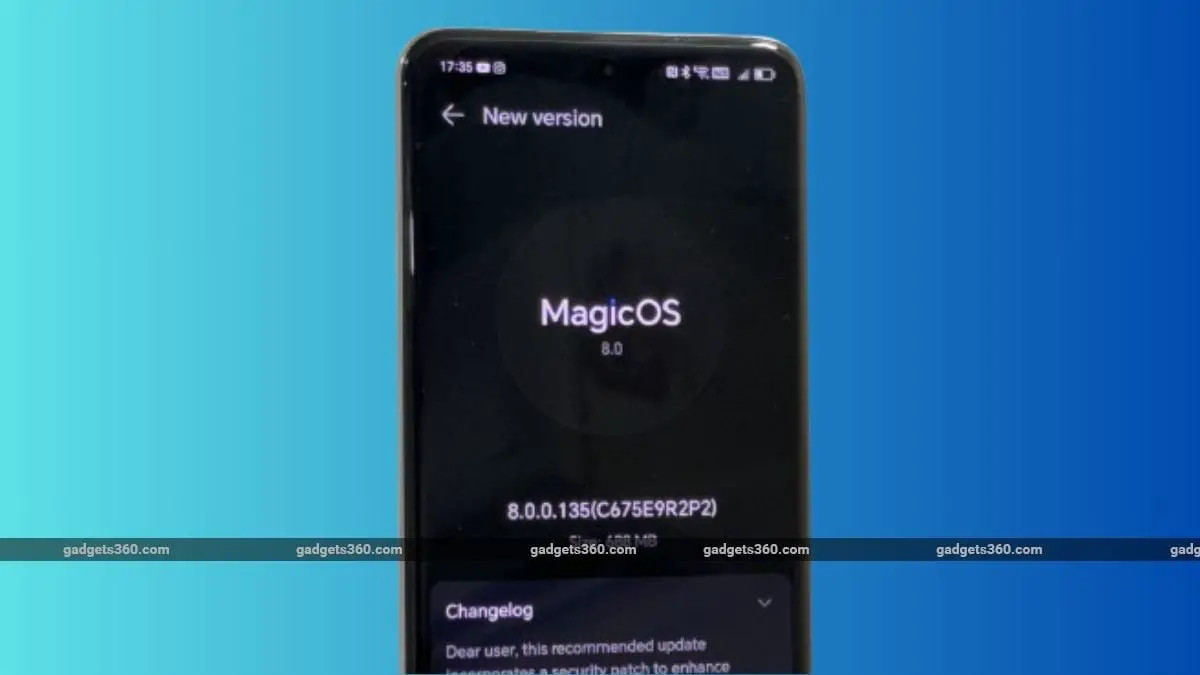Epic Games today officially launched a rival app store for iOS in the European Union, marking the first time Apple’s own App Store has had to face a serious rival. The Epic Games Store will initially offer Epic’s games, including Fortnite, for users to download onto their iPhones, with plans to start onboarding third-party developers’ games beginning in December.
The launch, the most dramatic outcome of a series of new EU tech rules passed over the last year, imports the long-standing rivalry between Epic and Apple onto European soil. Epic says its app store will take a maximum 12 percent commission on sales, undercutting Apple’s App Store, where fees can reach up to 30 percent. The Epic Games Store, says Max von Thun, Europe director at the Open Markets Institute, has “a good chance at taking a chunky bite out of Apple’s highly lucrative app store business.”
Speaking to reporters on Wednesday, Epic CEO Tim Sweeney hailed the arrival of the Epic Games Store to iOS as a way to fix the “largely broken” mobile gaming industry. “Competition wouldn’t crush Apple’s App Store,” he said. “It would force Apple to compete with better prices and with better features and better promotions and better marketing deals and less advertising.”
Epic is making use of a new EU regulation known as the Digital Markets Act (DMA), which forces tech giants to make changes to give rivals more access to their closely guarded communities of users. In Apple’s case, that means the company has to allow alternative app stores onto European devices.
“The European example shows that this kind of regulation can have teeth and can succeed,” Sweeney said, adding that this can be a template for other regulators. Apple has changed its business terms for European developers four times this year as it attempts to dodge EU fines for failing to comply with the DMA—penalties that could amount to up to 10 percent of Apple’s global revenue—while implying that alternative app stores are a security disaster waiting to happen.
To others, the arrival of the Epic Games Store on iOS is a sign that the EU can force tech giants to change. “The alternative app store could become the most visible way for showing how competition can work,” Andreas Schwab, a member of the European Parliament who helped draft the DMA, tells WIRED. Alternative app stores prove “the DMA can stimulate competition and thereby bring down prices for consumers,” Schwab adds.
The Epic development is a blow to Apple’s hegemony in iOS apps. Sixteen years ago, the company launched its App Store marketplace, described by WIRED at the time as a “defining moment in the history of personal computing.” Apple grew that business to generate $1.1 trillion in sales in 2022; it is now one of the company’s main drivers of revenue.
Yet over the years, the developers making iOS apps slowly started to turn against the company. First, developers grated against the commission—30 percent at its peak—that Apple took from some in-app payments. There were the privacy changes—specifically the “Ask App Not To Track” option, which cut into apps’ advertising revenue, translating to an estimated $12 billion hit to Facebook alone. Finally, there were the rules about what developers could and could not submit to the app store. App updates that included links to the company’s website, for example, were not allowed.
Epic has spent hundreds of millions of dollars in legal fees fighting Apple in court, Sweeney said. That, he added, is on top of the lost revenue incurred when Apple banned Fortnite from its App Store in 2020. Yet Sweeney said he thought all the expense was worthwhile: “There’s really no price that isn’t worth paying for freedom for all developers in the future of gaming.”
The Epic Games Store launched globally on PC and Mac in 2018. The launch of its iOS version means the company’s European users can now also visit Epic.download to get the Epic Games Store for their phones, which can be used in turn to download iPhone apps. Still, iOS installation is a cumbersome, 15-step process, according to Epic, including what the company calls “scare screens” and dead ends. Epic claims Apple has made the user experience “intentionally poor quality” to disincentivize the alternative app stores use.
Sweeney had some stinging words for Apple. “They could have made an awesome open platform out of iOS,” he said. “They just choose to make it a horrible one because they still think they’re going to get away with this.” He criticized Apple’s terms that penalize developers that list on both Apple’s App Store and alternative app stores, like Epic’s. For that reason, “almost all” of the 250 top mobile game developers have told Epic they will not list their app on the Epic Games Store, according to Steve Allison, vice president and general manager of the Epic Games Store.
Apple spokesperson Fred Sainz denies that Apple’s business terms disincentivize app creators working with alternative app stores, claiming 99 percent of developers won’t have to pay Apple’s so-called core technology fees (described by critics as an alternative app store tax). He also rejects the idea that the company makes alternative iOS app stores difficult to use, claiming the download process is only five steps, not 15. “The DMA required us to enable new capabilities for developers in the EU,” he tells WIRED in a statement, “and we have worked to make them as easy as possible for users while also trying to protect their privacy and security.”
Today, Epic also announced it will list its games with other EU app stores, including AltStore, a Dallas-based alternative that now claims 150,000 European users. Since 2019, cofounders Riley Testut and Shane Gill had been running what they describe as an “unofficial” alternative app store, where users around the world sent the duo their Apple ID and password in order to be able to access AltStore’s video game console emulator, Delta. When they heard about Europe’s DMA, they decided to take the opportunity to go legit and launch the official version of AltStore in the EU in April.
Like all alternative app stores, AltStore has to pay Apple €0.50 ($0.55) for every user download or update. So far, the store has launched only six mobile apps on their European iOS app store—a number Testut and Gill blame on Apple’s lengthy approval process. One app, they said, took 65 days to be approved. Apple declined to comment on the specific example.
AltStore, which charges no commission, isn’t as worried as Epic about the allegedly cumbersome download process. Their users—150,000 in Europe so far—are more technically minded: the emulator community, jailbreakers, and other hardcore fans who are used to trying workarounds to access the apps they want. “What we want to put out to people is: Look, we’ve cut through the red tape that Apple keeps putting up so that you guys can have the open distribution that we’re used to on the web,” Gill tells WIRED.
With the introduction of alternative app stores underway in Europe, Epic is already campaigning for the policy to be expanded to the US. This week, US-based Patreon, which lets content creators solicit subscriptions from their fans, announced Apple would start charging them a 30 percent fee on all new subscriptions beginning in November. The change prompted Patreon to recommend that creators increase their prices to offset the new costs.
For Sweeney, the Patreon situation is a clear example of why the system needs to change. “It’s been a massive failure of the United States regulatory and political system that there’s not a crisp, clean action to stop the monopolization occurring in the United States,” he said.










